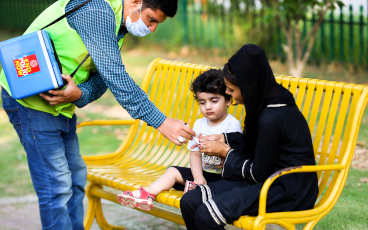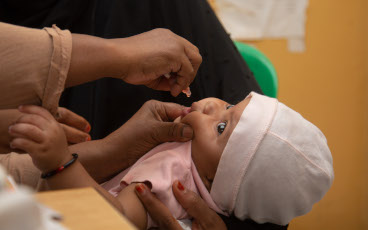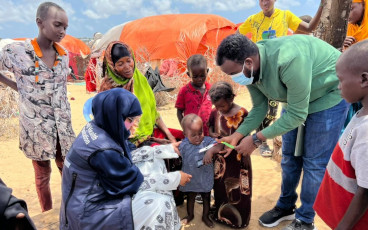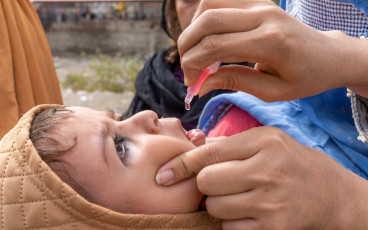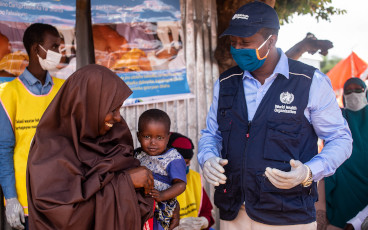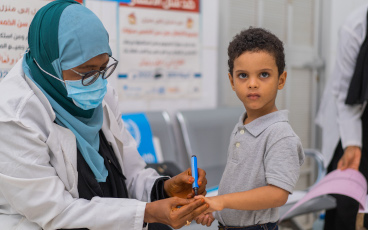From smallpox to polio, a life spent pursuing eradication
Mohamed Shire, a polio eradication expert from Somalia, speaks about lessons from a life tirelessly working to eradicate first smallpox, then polio.
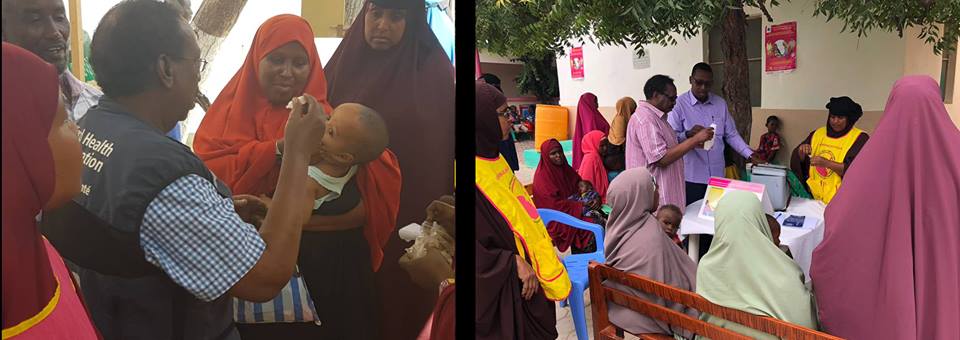
I have spent nearly my whole career working on eradication programmes – first smallpox, then polio. Eradication has been a rewarding career for me because I am so curious to know what is happening in the world. Every time I see a disease that we have worked so long to stop returning, I become so unhappy and know I need to work to stop it.
I worked for the smallpox eradication programme back in the 1970s. I was an epidemiologist – this means that my job was to track the disease and plan how we could stop it.
We used to hold vaccination campaigns at night because then we knew everyone would be at home, and we wouldn’t risk missing a single person. As our cars pulled up out of the dark, people would peer out of their houses to see what was happening. Somalis are very curious! As we brought them the vaccine, occasionally someone would make trouble, but mostly people were pleased to see us.
Somalia was the last country where smallpox was found in the whole world. When I knew we had really ended it in 1977, I was so happy. My name was printed there on the certification document – it was something to be proud of. We had freed the world from smallpox!
I remember one of my friends calling me in 1997 to tell me we were going to eradicate another disease, and that we had to look out for something called ‘AFP’. I thought to myself, what is this ‘AFP’? I hadn’t heard of it. They explained to me that it means acute flaccid paralysis – and that it was the symptom of a disease called polio.
Then one day in 1999, I received a call asking if I would come and work for the second eradication programme in my single lifetime. They said, “If you are ready, we will make you a coordinator. We don’t know if there is polio in Somalia or not, but we want you to come and see.” I jumped at the chance.
We started to search, looking for AFP cases, to collect stool samples and then to send them to the laboratory for testing. And soon, we had confirmation that polio was in Somalia. As soon as we found cases, lots of people came from inside and outside Somalia to help.
By 2002, we found the last case of indigenous polio, and thought the game was won. I even joked to my friends saying, what will we do now that polio is eradicated? They said to me, no – we still have polio in Nigeria, Egypt, Pakistan, many other countries – another case will come. We have to be prepared to stop it if it comes.
And true enough, we had an outbreak in 2005, and again in 2013. Each time we stopped it. Last year, we found circulating vaccine-derived poliovirus type 2. Vaccine-derived polio causes paralysis just like wild polio, and we must eradicate it too.
We started to organize ourselves and held two vaccination campaigns. But then we found another virus – circulating vaccine-derived poliovirus type 3. So now, we are responding to two outbreaks that need different vaccines at the same time. If we miss cases and miss getting vaccines to all children, we can’t stop polio. It is hard, but we will end these outbreaks just as we ended wild polio before.
Eradicating polio has been very difficult – more difficult than it was to end smallpox. I suffered – me and my wife were even kidnapped once. But I am always motivated to keep going. My motivation was never my salary – to stay alive, I need to work. I must know what is going on in my country, if my people are safe. From morning until night, my job is to make sure activities can go on peacefully. My family are my true reason for committing my life to eradication. I have seven children, and 30 grandchildren; I never once missed getting any of them vaccinated. Never.
I am sure that we will finish this job. When we eradicate polio, I will be so happy – I will have been involved in the certification of the second human disease ever to be eradicated. I feel so lucky to have spent my life working for these two eradication programmes; I am proud to tell stories to my grandchildren of my life’s work.
Eradicating polio won’t take a miracle. It is a job. It needs a lot of hard work to end an outbreak. There is no other way – the only way is to work hard, to find cases, and to respond. We hope that in the coming months we will make it. I do believe we will make it. Inshallah.


